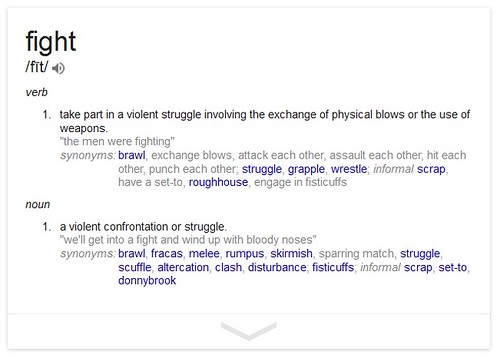The Orient Express was the name of a long-distance passenger train originally operated by the Compagnie Internationale des Wagons-Lits. Its route has changed many times, and several routes have in the past concurrently used the name, or slight variants thereof. Although the original Orient Express was simply a normal international railway service, the name has become synonymous with intrigue and luxury travel. The two city names most intimately associated with the Orient Express are Paris and Istanbul, the original endpoints of the service.
The original route, which first ran on October 4, 1883, was from Paris, Gare de l’Est, to Giurgiu in Romania via Munich and Vienna. At Giurgiu, passengers were ferried across the Danube to Rousse in Bulgaria to pick up another train to Varna, from where they completed their journey to Istanbul (then called Constantinople) by ferry. In 1885, another route began operations, this time reaching Istanbul via rail from Vienna to Belgrade and Nis, carriage to Plovdiv and rail again to Istanbul.
In 1889, the train’s eastern terminus became Varna in Bulgaria, where passengers could take a ship to Istanbul. On June 1, 1889, the first non-stop train to Istanbul left Paris (Gare de l’Est). Istanbul remained its easternmost stop until May 19, 1977. The eastern terminus was the Sirkeci Terminal by the Golden Horn. Ferry service from piers next to the terminal would take passengers across the Bosporus Strait to Haydarpasa Terminal, the terminus of the Asian lines of the Ottoman railways.
The onset of World War I in 1914 saw Orient Express services suspended. They resumed at the end of hostilities in 1918, and in 1919 the opening of the Simplon Tunnel allowed the introduction of a more southerly route via Milan, Venice and Trieste. The service on this route was known as the Simplon Orient Express, and it ran in addition to continuing services on the old route. The Treaty of Saint-Germain contained a clause requiring Austria to accept this train: formerly, Austria allowed international services to pass through Austrian territory (which included Trieste at the time) only if they ran via Vienna. The Simplon Orient Express soon became the most important rail route between Paris and Istanbul.
The 1930s saw the zenith of Orient Express services, with three parallel services running: the Orient Express, the Simplon Orient Express, and also the Arlberg Orient Express, which ran via Zürich and Innsbruck to Budapest, with sleeper cars running onwards from there to Bucharest and Athens. During this time, the Orient Express acquired its reputation for comfort and luxury, carrying sleeping-cars with permanent service and restaurant cars known for the quality of their cuisine. Royalty, nobles, diplomats, business people and the bourgeoisie in general patronized it. Each of the Orient Express services also incorporated sleeping cars which had run from Calais to Paris, thus extending the service right from one edge of continental Europe to the other.
The start of the Second World War in 1939 again interrupted the service, which did not resume until 1945. During the war, the German Mitropa company had run some services on the route through the Balkans, but partisans frequently sabotaged the track, forcing a stop to this service.
Following the end of the war, normal services resumed except on the Athens leg, where the closure of the border between Yugoslavia and Greece prevented services from running. That border re-opened in 1951, but the closure of the Bulgaria-Turkey border from 1951 to 1952 prevented services running to Istanbul during that time. As the Iron Curtain fell across Europe, the service continued to run, but the Communist nations increasingly replaced the Wagon-Lits cars with carriages run by their own railway services.
By 1962, the Orient Express and Arlberg Orient Express had stopped running, leaving only the Simplon Orient Express. This was replaced in 1962 by a slower service called the Direct Orient Express, which ran daily cars from Paris to Belgrade, and twice weekly services from Paris to Istanbul and Athens.
In 1971, the Wagon-Lits company stopped running carriages itself and making revenues from a ticket supplement. Instead, it sold or leased all its carriages to the various national railway companies, but continued to provide staff for the carriages. 1976 saw the withdrawal of the Paris-Athens direct service, and in 1977, the Direct Orient Express was withdrawn completely, with the last Paris-Istanbul service running on May 19 of that year.
The withdrawal of the Direct Orient Express was thought by many to signal the end of Orient Express as a whole, but in fact a service under this name continued to run from Paris to Budapest and Bucharest as before (via Strasbourg, Munich, and Budapest). This continued until 2001, when the service was cut back to just Paris-Vienna, the coaches for which were attached to the Paris-Strasbourg express. This service continued daily, listed in the timetables under the name Orient Express, until June 8, 2007. However, with the opening of the Paris-Strasbourg high speed rail line on June 10, 2007, the Orient Express service was further cut back to Strasbourg-Vienna, departing nightly at 22:20 from Strasbourg, and still bearing the name.


 Welcome to the Stars Hollow Gazette‘s
Welcome to the Stars Hollow Gazette‘s 
 The Orient Express is the name of a long-distance passenger train, the route for which has changed considerably in modern times. The first run of The Orient Express was on 4 October 1883. The train travelled from Paris to Giurgiu in Romania, via Munich and Vienna. At Giurgiu, passengers were ferried across the Danube to Ruse in Bulgaria to pick up another train to Varna. From here they completed their journey to Istanbul by ferry.
The Orient Express is the name of a long-distance passenger train, the route for which has changed considerably in modern times. The first run of The Orient Express was on 4 October 1883. The train travelled from Paris to Giurgiu in Romania, via Munich and Vienna. At Giurgiu, passengers were ferried across the Danube to Ruse in Bulgaria to pick up another train to Varna. From here they completed their journey to Istanbul by ferry.
Recent Comments